法国新闻社:中国的晋剧团艰难地传承艺术在农村
2017-05-08 发表|来源:法国新闻社|作者:王亚楠Opera troupe tours rural China defending a dying art
Yanan WANG
AFP May 1, 2017
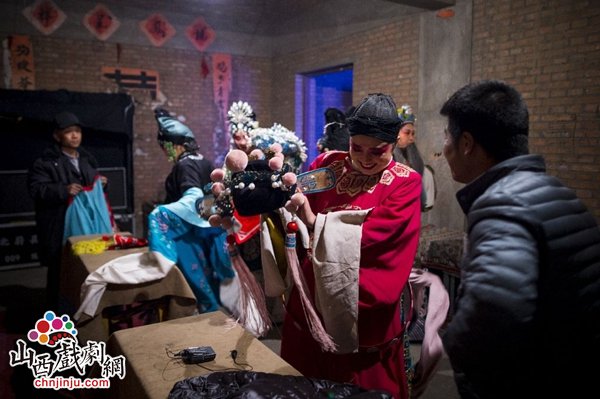

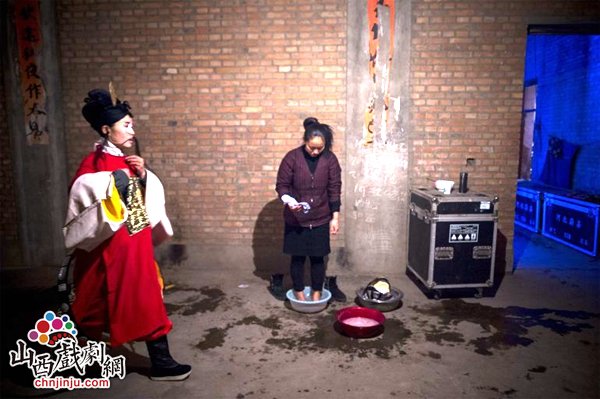
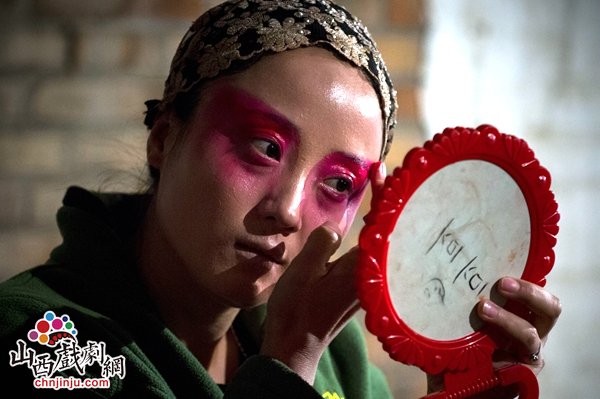
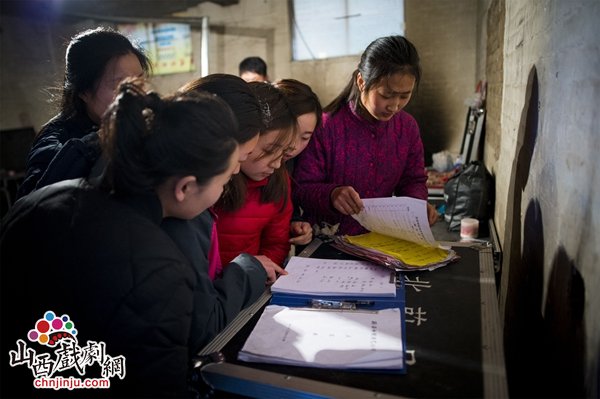
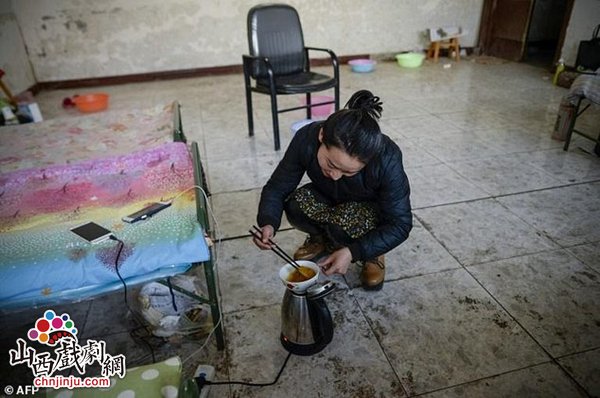
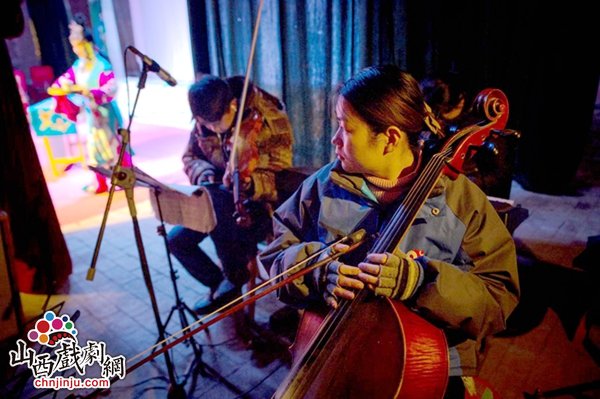


译文:
对于50岁的中国晋剧表演者,昏暗的后台的各个方面都提醒了事情发生了变化。
这些精心设计的服装不小心被抛在一边,年轻的剧团成员在玩着他们的智能手机,在角落里被遗弃的吃的一半面条,这些都是让李志国做鬼脸和心里混乱的象征。
“我有时候会看着我的学生表演,因为他们不认真”,李说。
“但当他们问我,是否只要努力排练,就能保证他们过上好日子,我没什么可说的。”
35年前,李在河北省北部的蔚县晋剧团参加演出时,他和其他十几岁的年轻人都相信,作为传统艺术的传承者,他们已经有了稳定的未来。
但是,2005年的政策改革使政府资助的国有院团成为私营企业,没有具体的业务战略,消除了表演者的薪酬,威胁着兴起于清朝的晋剧艺术的未来。
以文场四大件和梆子乐器为特色的晋剧,起源于河北蔚县接壤的山西省。
从春节到三月底,这个剧团从河北的村庄到村庄,在农村的舞台上表演,观众大部分是老年人。
尽管他们的新业务被指定,但他们很少为演出和观众收费,大多数观看者不愿支付,而是严重依赖当地村委会或政府的买单。
在这里的最后一场演出的舞台后台,李先生叹了口气说,他叙述了近年来所有的离别。他的许多学生在为了维持家庭后离开了这个剧团。
“如果是关于艺术,我会告诉他们留下来”,李说。 “如果是生存,我会告诉他们:去吧”。
“铁饭碗”不再
自1985年以来,他们90多人一直至蔚县地带活跃起来,在蔚县举行了面试,表演者在13岁至15岁之间加入,那些留下来的人已经相互认识了他们彼此的人生。
前演员刘东海(音译)现在帮助管理这个剧团,他回忆说,当时从一千多名孩子中挑选出来,就像中了彩票一样。
他的父母很高兴,因为当时作为国家机构,这个剧团向他提供了一个“铁饭碗” ,中国的安全工作的说法。
然而现在,由于他们被剥夺了公共的地位,一些表演者已经开始在演出间隙之间开车,以获得额外收入。
即使是最资深的演员,每个月的收入也低于2500元(363美元),而在一个最低月工资为1590元(231美元)的地区,演员的平均收入只接近1500元(217美元)。
在过去的23年里,36岁的刘先生一直和这个团体在一起,他看到他的同伴们都在退缩,团体在缩小。但一种忠诚的感觉让他无法离开。
“这是我的家人”,他说。“我们的剧团团长就像我的父亲一样。无论他说什么,我都会做”。
有时,这意味着在零下的天气里演出,或者在雪花飘落的雪地上穿着他精心制作的服装进行表演。
但是,30岁的女演员耿立平说:“当你在舞台上时,你永远不会觉得冷。”
“悬在他们头上的剑”
晋剧表现着山西的文化,故事线浸透在怀旧中。
山西戏剧网站长王嘉说,现代观众有不同的口味。
“甚至我们对美的观念也发生了变化,所以从服装到对话,一切都在进行适合当代的审美转换,”王说。
他们现在面临的最大问题是仍然过着一个演员的“游牧”状态,这是一种没有保障的生活。
“他们大多没有医疗和工伤保险”。
“他们的基本需求是否会得到满足的问题就像悬在戏曲工作者头上的剑”,王先生说。
在榆县宝鸡村3月份的表演中,观演区没有椅子,但有些观众会从家自带。其他人从汽车里面看,或者沿着一个破碎的砖篱笆发现坐着观看之处,因此一阵严酷的风会吹过他们。
表演者说,更多的人过去曾经在这里县煤矿关闭之前移民离开。
现在有大约五十名大多数是本地老年人,其中一些人抱着婴儿。他们在口头上听到了这个演出。
20岁的张泽辉是观众中少数几个年轻人之一,曾与祖母出席过几次演出。
“晋剧既生动又有趣,但我并不真正理解它,”张说。
穿着色彩鲜艳的长袍,李站在后台,等待着他的上场。
“这值得吗?”他看着人群,问道。“这对我来说是个大问号。”
原文:
For the 50-year-old Chinese opera performer, every aspect of the dimly-lit backstage room was a reminder that things had changed.
The elaborate costumes carelessly thrown aside, the young troupe members playing with their smartphones, the half-eaten noodles abandoned in the corner -- all were tokens of disorder that made Li Zhiguo grimace in his blue and gold cap.
"I get angry sometimes watching my students perform, because their heart isn't in it," Li said.
"But when they ask me if rehearsing diligently will guarantee them a good living, I have nothing to say."
When Li joined the Yu County Jin Opera Troupe in northern Hebei province 35 years ago, he and his fellow teenage recruits believed that they had secured stable futures as the public guardians of a traditional art.
But policy reforms in 2005 turned their government-sponsored project into a private venture without a concrete business strategy, gutting the performers' salaries and threatening the future of an early Qing Dynasty opera form.
Jin opera, which is characterised by upbeat songs and wooden clapper instruments, originated in the northern Shanxi province bordering Yu county.
From the Spring Festival to the end of March, the troupe travels from village to village in Hebei, performing on ramshackle rural stages to mostly elderly crowds.
Despite their new business designation, they still rarely charge for performances -- most attendees wouldn't pay -- and rely heavily on support from local governments.
Backstage at one of their last shows of the season, Li sighed as he recounted all the departures in recent years. Many of his students had left the troupe after struggling to support their families.
"If it's about the art, I'll tell them to stay," said Li. "If it's about survival, I'll tell them: go."
- An 'iron rice bowl' no more -
The group of 90 has been active since 1985, drawing its members from auditions held across Yu county. The performers join when they are between 13 and 15 years old; those who stay have known each other their entire adult lives.
Liu Donghai, a former actor who now helps manage the troupe, recalled that being chosen from among more than a thousand kids had felt like winning the lottery.
His parents were thrilled because, being a state institution at the time, the troupe offered him an "iron rice bowl" -- the Chinese parlance for a secure job.
Since they were stripped of their public status, however, some performers have started driving pedicabs between shows for supplementary income.
Even the most senior members of the troupe make less than 2,500 yuan ($363) a month, while the average actor makes closer to 1,500 yuan ($217) in a district where the minimum monthly wage is 1,590 yuan ($231).
Over the 23 years that Liu, 36, has been with the group, he has seen his cohort shrink. But a sense of loyalty has kept him from leaving.
"This is my family," he said. "Our troupe leader is like a father to me. Whatever he says, I'll do."
Sometimes that means singing in negative degree Celsius weather, or dancing while snow settles on his elaborate costumes.
But as Geng Liping, a 30-year-old actress, said, "When you're on stage you never feel cold."
- 'Sword dangling over their heads' -
Jin opera recounts ancient Shanxi history, with storylines soaked in nostalgia for the province's imperial past.
Modern audiences have different tastes, said Wang Jia, founder of the China Jin Opera Network.
"Even our notion of beauty has changed, so everything -- from the costumes to the dialogue -- is being adapted for contemporary viewing," Wang said.
The greatest problem they face now is attracting young recruits willing to endure the nomadic life of an actor, a life without financial guarantees.
"Most of them don't have health insurance," Wang said.
"The question of whether their basic needs will be met is like a sword dangling over their heads."
At a March performance in Yu county's Baocao village, there were no chairs in the viewing area, but some attendees had brought their own. Others watched from inside their cars, or found perches along a crumbling brick fence as a harsh wind blew around them.
More people used to come, the performers said, before the county's coal plants closed and the migrants left.
Now there were about 50 mostly elderly locals, some with babies in their arms. They heard about the show through word of mouth.
One of the few young people, 20-year-old Zhang Zehui, had attended several performances with her grandmother.
"It's lively and interesting, but I don't really understand it," Zhang said.
Garbed in a colourful robe, Li stood backstage, awaiting his cue.
"Has it been worth it?" he asked as he looked out at the crowd. "That's a big question mark in my heart."

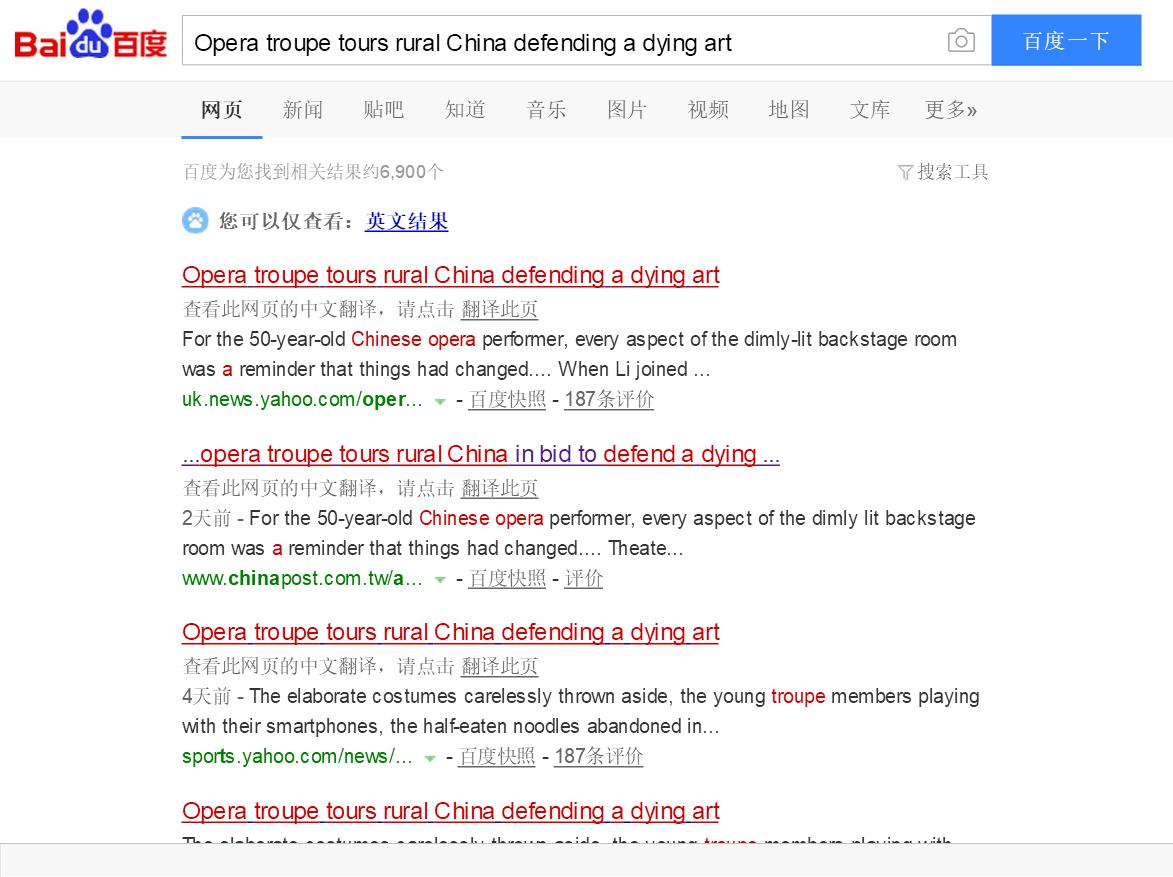
法国新闻社(AFP),成立于1944年,是与路透社、美联社和合众社齐名的西方四大世界性通讯社之一。前身是由夏尔·哈瓦斯于1835年创建的“哈瓦斯通讯社”。法新社是全球第一家通讯社,也是西方四大通讯社中资格最老的一个。








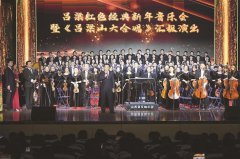 吕梁红色经典新年音乐会暨《吕梁山大合
吕梁红色经典新年音乐会暨《吕梁山大合 2023年山西戏剧百事记
2023年山西戏剧百事记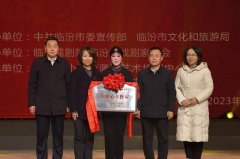 “任跟心名家艺术工作室”揭牌仪式暨传
“任跟心名家艺术工作室”揭牌仪式暨传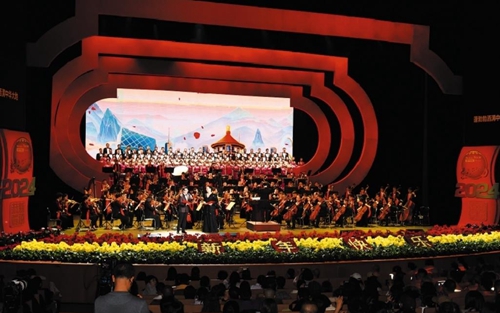 大同市2024新年音乐会精彩上演
大同市2024新年音乐会精彩上演 孙业礼任文化和旅游部部长 胡和平不再担
孙业礼任文化和旅游部部长 胡和平不再担

 晋公网安备14010902001572
晋公网安备14010902001572